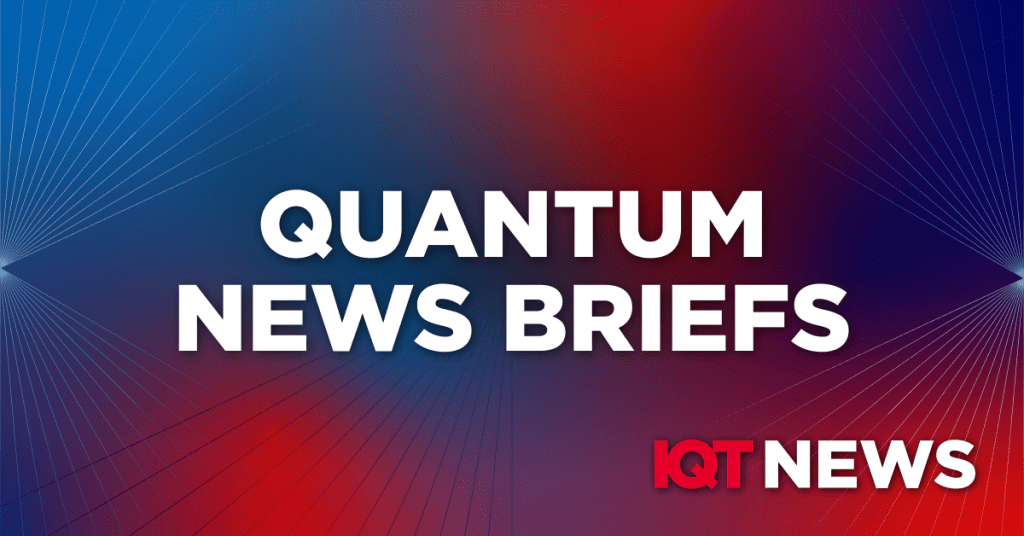News Briefs:
Novo Nordisk & Cleveland Clinic announce new fellowship program integrating quantum tech & AI in medicine
In a new initiative that blends innovation in quantum technologies and artificial intelligence (AI) with clinical applications, the Novo Nordisk Foundation (NNF), together with the Cleveland Clinic, has launched the Cleveland Clinic – Denmark: Quantum-AI Biomedical Frontiers Fellowship Program as per the August 6 news release.
This program, crafted jointly by the Denmark-based NNF and Cleveland Clinic, is dedicated to integrating quantum technologies and AI into biomedical research and patient care, propelling the application of these technologies in medical science and healthcare.
Denmark’s strategic dedication to quantum technologies and AI, supported by substantial investments from the NNF and bolstered by the Danish government, has fostered a dynamic ecosystem for pioneering technological research.
NNF will grant up to DKK 43 million ($6.2 million USD) over the next three years to support exchange of 12 researchers, providing them each with a three-year term to conduct high-level research either at Cleveland Clinic or in Denmark. In Cleveland, the fellows will also have the opportunity to work with IBM researchers collaborating with Cleveland Clinic scientists through the Discovery Accelerator partnership.
In addition to a focus on academic research, this programme also encourages applicants to consider industrial placements lasting three to six months with leading technology companies and startups.
IonQ awarded quantum computing contract with Applied Research Laboratory for Intelligence and Security
IonQ announced July 6 that it has won a contract through a competitive solicitation with the Applied Research Laboratory for Intelligence and Security (ARLIS) to design a first-of-its-kind, networked quantum computing system for the Department of Defense (DOD) as per the IonQ August 6 news release.
The first phase of the project – awarded at $5.7 million – will focus on the design phase of the quantum system. Future phases of the project, which have yet to be awarded, include the construction, delivery, and maintenance of these systems. Through this project, ARLIS will conduct hands-on research into the cybersecurity of multi-party quantum computation, including blind quantum computing protocols – a process where quantum computers remain ‘blind’ to what information is being processed through them. This effort is funded by an award from the Secretary of the Air Force Concepts, Development, and Management Office.
ARLIS is the Department of Defense’s principal university-affiliated research center (UARC) for intelligence and security, and this contract extends the reach of IonQ technology to yet another U.S. federal agency. The federal government is focused on shaping the U.S. into an internationally recognized leader in quantum computing. Agencies like the U.S. Air Force Research Lab (AFRL) have previously announced deals with IonQ to use the company’s systems for quantum networking research and application development.
QuEra Computing’s research shows over half of quantum experts see rapid progress
QuEra’s research was published July 6 in its ‘Current and future state of quantum computing’ report (see here) and was conducted on over 900 quantum computing academics, scientists and professionals across the globe. The positive outlook highlights the significant progress being made in solving the main barriers to quantum computing development and adoption, which QuEra’s research identified as scalability (33%), error correction and fault tolerance (31%), and hardware performance (20%).
D-Wave and Davidson garner political support for quantum computing installation in Alabama
D-Wave’s state-of-the-art AdvantageTM quantum computing system, expected to be installed at Davidson’s headquarters in 2025, will eventually be housed in a secure facility designed to run sensitive applications using D-Wave’s quantum computing technology. Meanwhile, efforts surrounding use case identification, application development, and engagement with the local community have already commenced.
Politicians who commended this development include Sen. Tommy Tuberville, Rep. Dale Strong, Rep. Mike Rogers, Chair of the House Armed Services Committee, and Sen. Marsha Blackburn.
Dale Moore, President of Davidson., said “We are honored to play an important role in advancing the use of quantum technology in national security, as we support the vital mission of defending the U.S. and its allies, both domestically and internationally.”
